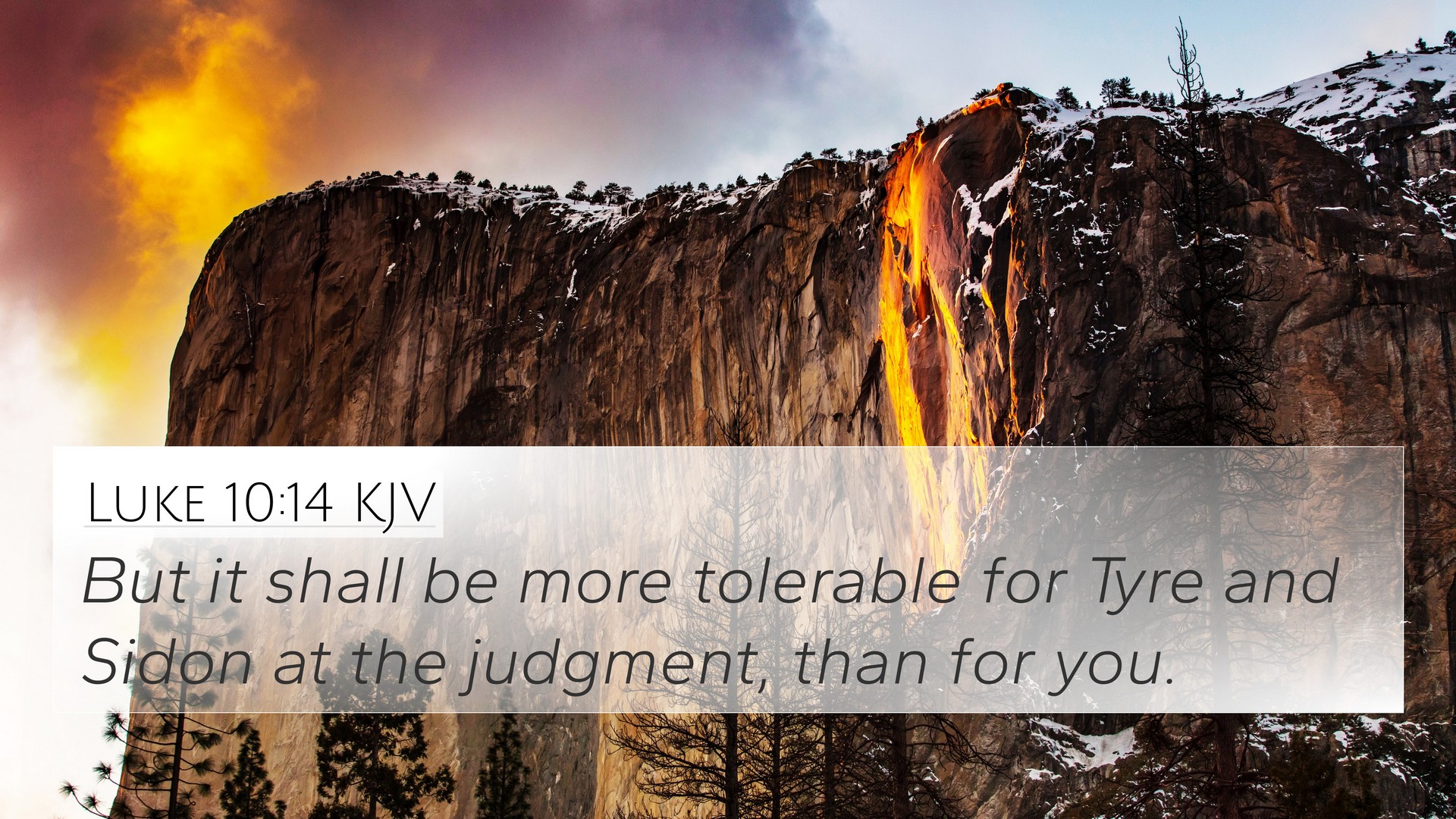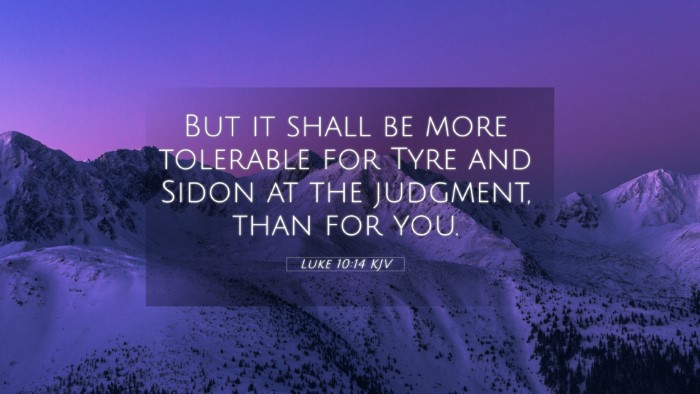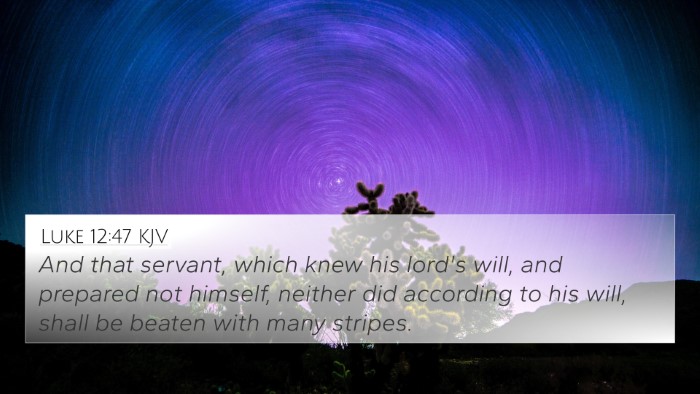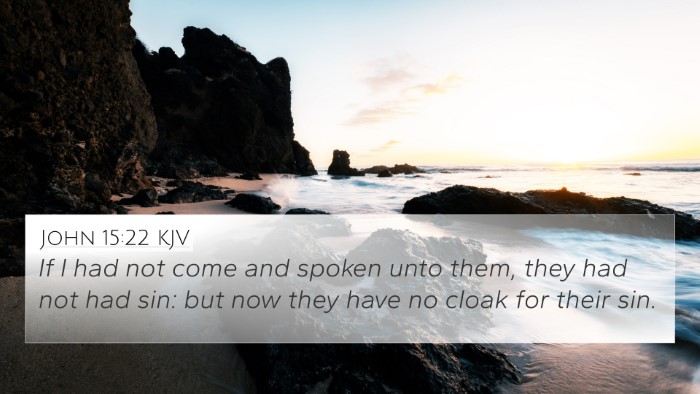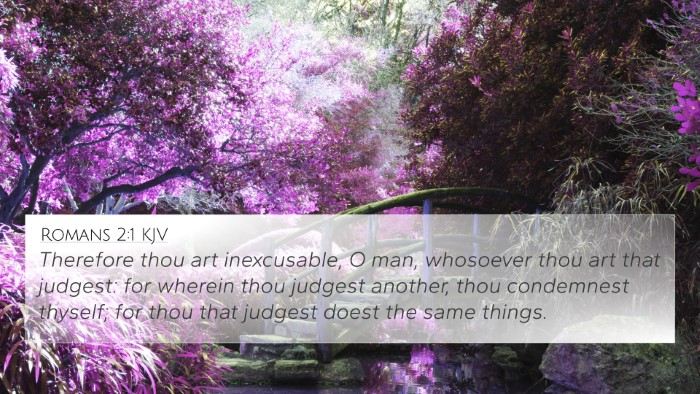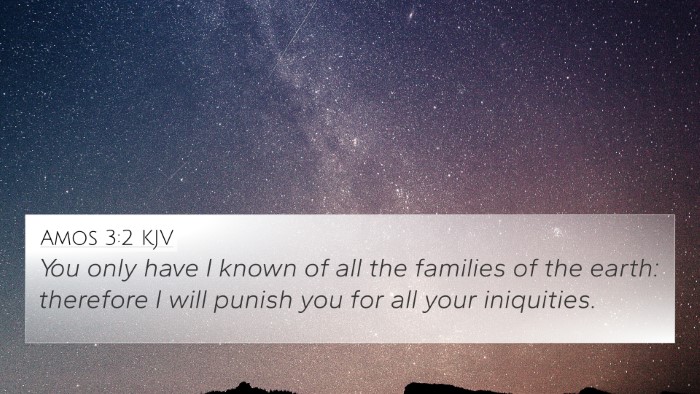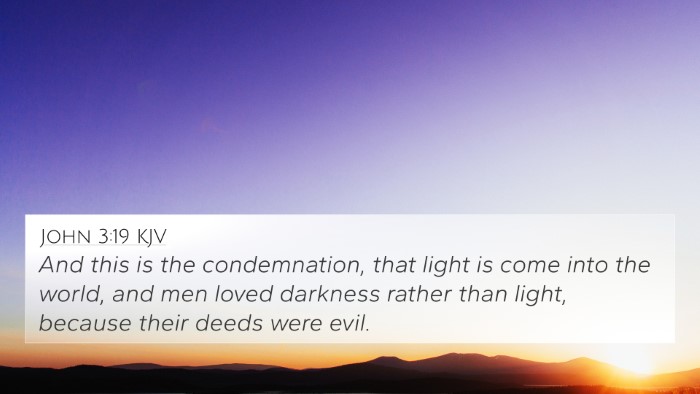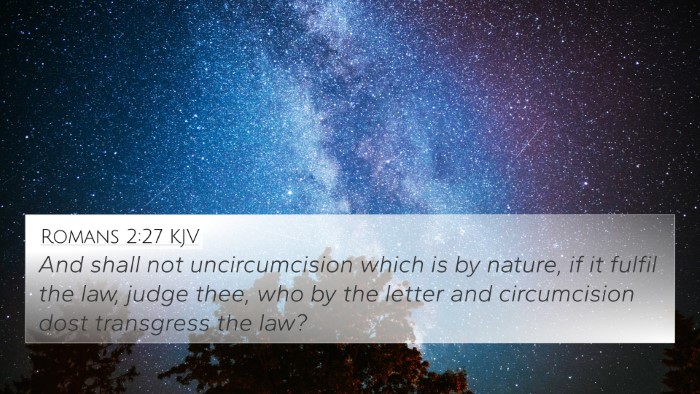Understanding Luke 10:14
Verse: "But it shall be more tolerable for Tyre and Sidon at the judgment, than for you." (Luke 10:14)
This poignant verse appears in the context of Jesus' admonition to those who refuse to accept His message. Through the lens of various public domain commentaries, we can glean a deeper understanding of its implications.
Summary of Interpretation
The verse highlights the concept of judgment and accountability regarding the knowledge and acceptance of God's message. Jesus contrasts the fate of unrepentant towns like Chorazin and Bethsaida with that of Tyre and Sidon, indicating that greater revelation brings about greater responsibility.
Insights from Commentators
- Matthew Henry:
Matthew Henry emphasizes the severity of judgment for those who have had the testimony of Christ yet rejected it. He notes that Tyre and Sidon, known for their wickedness, would fare better in judgment than the towns that rejected Jesus, highlighting the weight of privilege and divine knowledge.
- Albert Barnes:
Barnes discusses the nature of judgment, suggesting that those who hear the Gospel and resist it will be judged more harshly than those who have not had the same opportunity to repent. He articulates the moral imperative of accepting the truth when it is revealed.
- Adam Clarke:
Clarke gives a historical context to analyze the significance of Tyre and Sidon, considering them as exemplars of God's mercy despite their sin. He argues that the towns addressed by Jesus had witnessed miracles and teachings that should have led them to repentance.
Thematic Connections
This verse encapsulates various themes within Scripture, such as:
- Accountability for Revelation: The principle that with greater knowledge comes greater responsibility is foundational to biblical teaching.
- Judgment and Mercy: Jesus contrasts different outcomes at judgment based on the acceptance of His message.
- Repentance: There is a clear call for the necessity of repentance in light of God’s revelations.
Cross-References
Luke 10:14 can be cross-referenced with the following Bible verses to explore its meaning further:
- Matthew 11:21-22: A parallel where Jesus rebukes similar cities for their unbelief.
- Mark 6:11: Jesus commands His disciples about the fate of cities that reject them.
- Revelation 20:12: The great white throne judgment which speaks to accountability.
- Luke 12:47-48: Servants being punished based on their knowledge of their master's will.
- Isaiah 23:1-18: A prophecy concerning Tyre and Sidon’s fate.
- Matthew 10:15: Similar indications of judgment for those who reject the gospel.
- Luke 13:1-5: Calls for repentance with a warning of judgment, stressing a widespread biblical theme.
Practical Applications
Understanding Luke 10:14 encourages readers to:
- Reflect on their response to the Gospel and revelations of God.
- Consider the impact of their knowledge of biblical truths on their spiritual life.
- Help educate others about the importance of repentance.
- Engage in comparative Bible verse analysis to discern deeper meanings in Scripture.
Conclusion
Luke 10:14 stands as a stark reminder of the consequences of rejecting God's message. It fosters a rich dialogue about judgment, mercy, and the responsibilities that come with knowledge. By exploring this verse and its connections to other passages, believers can gain valuable insights into God's character and His expectations for humanity.
